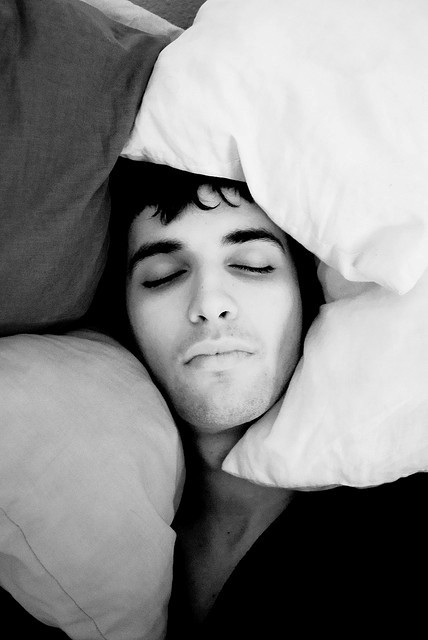Sleep Apnea Patients likely to Develop Hearing Difficulties: Study

Sleep Apnea can cause hearing impairment, finds a study.
Individuals with sleep apnea suffer breathing difficulties due to blockage in the airway. A recent trial presented at the 2014 American Thoracic Society International Conference found sleep apnea patients are likely to develop low and high frequency impairment.
Experts examined 13,967 people from the Hispanic Community Health Study who underwent sleep apnea tests at home. The participants also took audiometric tests to note the impacts on respiratory condition on ability to hear and recognize sounds with varied intensity and pitch. The subjects' severity of sleep apnea were evaluated using apnea-hypopnea index (AHI) based on the number of airway blockage episodes in every one hour of sleep.
It was observed that about 10 percent of the participants had moderate sleep apnea. Almost 19 percent suffered high frequency hearing impairment with a mean hearing threshold of 25 decibels or higher in either ear at sound intensity of 2,000 Hz to 8,000 Hz. Nearly, 1.5 percent of the subjects had low hearing impairment with a hearing threshold of greater than 25 decibels in either ear at 500 Hz and 1,000 Hz. About 8.4 percent of the participants were found having both low and high frequency hearing impairment.
"Patients with sleep apnea are at increased risk for a number of co-morbidities, including heart disease and diabetes, and our findings indicate that sleep apnea is also associated with an increased risk of hearing impairment," said Amit Chopra, study author and researcher at the Albany Medical Center, New York, in a news release.
Sleep apnea is common in people of Cuban and Puerto Rican decent with high BMI levels. The study confirmed the breathing disorder is directly associated with increased chances of high frequency hearing impairment and 90 percent low frequency hearing impairment in all people irrespective of their age, sex, noise exposure, history of hearing disabilities and problems.
However, the research did not test the efficacy of sleep apnea treatments in increasing or decreasing the possibility of developing hearing problems.
May 24, 2014 07:39 AM EDT





